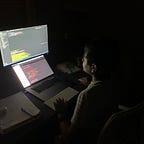What is Python?
Python is a high-level programming language that many companies, including FAANG, use today. The average Python developer earns about 120,000, according to Indeed in October 2020. Let that sink in for a moment… It is the world’s fastest growing and most popular programming language, not just among software engineers, but also amongst mathematicians, data analysts, scientists, accountant, networking engineers, kids, and the list goes on. Since it’s a very beginner friendly programming language. It’s the number one language employers are looking for.
Use Cases
People from different disciplines use Python for a variety of different tasks, such as data analysis and visualization, artificial intelligence and machine learning, automation. In fact, this is one of the big uses of Python amongst people who are not software engineers. For example, if you constantly have to do boring, repetitive tasks, such as copying files and folders around, renaming them, uploading them to a server, you can easily write a Python script to automate all that and save your time. That’s just one example, if you continuously have to work with excel spreadsheets, PDF’s, CSV files, download websites and parse them, you can automate all of this with Python. Python can allow you to develop web, mobile, and desktop applications as well as testing or even hacking, so Python is a multi-purpose language.
Why is Python better than other programming languages?
There are many reasons why Python is better than other programming languages. One reason is with Python you can solve complex problems in less time with fewer lines of code. It’s a high-level language, so you don’t have to worry about complex tasks such as memory management, like you do in C++. It’s cross platform which means you can build and run Python applications on Windows, Mac, and Linux. It has a huge community so whenever you get stuck, there is someone out there to help. It has a large ecosystem of libraries, frameworks, and tools which means whatever you wanna do it is likely that some else has done it before because Python has been around for over 20 years.
How to learn Python?
There are many ways to learn Python, paid and unpaid. One way to learn for free is to learn Python from looking at tutorials on YouTube and implementing the skills you learn in small projects. A great channel to learn Python from is Clever Programmer, this link will take you to their 11 hour Python tutorial which hits on the major points of the language. It goes from how to write your first line of code to how to develop a website using Python. Another way to learn Python is by using DataCamp, it is a paid platform which means you have to pay a certain amount of money every month or year. DataCamp is great if you would like to learn the data science part for Python or would like to enhance their skills. They also have courses for people who are just starting Python and have many testimonials of how DataCamp affected their life.
TL;DR
In a nutshell, Python is a multi-purpose language with a simple, clean, and beginner-friendly syntax. Everything you do with Python you can do with other programming languages, but Python’s simplicity and elegance has made it grow way more than other programming languages.
